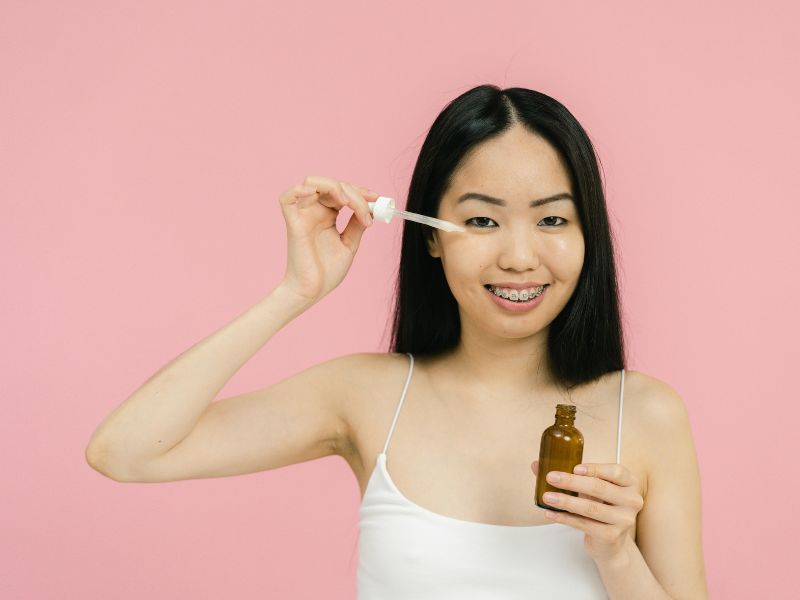Naturally, everyone’s skin produces oil, and this is actually a good thing! Skin oil, or sebum, plays a vital role in keeping your skin moisturized, protected from sun damage, and giving you that natural, vibrant glow. Believe it or not, oily skin slows down aging because it prevents wrinkles and keeps you looking youthful longer. So, oily skin is not all bad.
That said, some people have skin that produces way more oil than necessary. This can be frustrating and uncomfortable. Excess oil can lead to shiny skin, clogged pores, acne breakouts, and makeup that just won’t stay put. If you’re someone who has struggled with oily skin for years, you know how challenging it can be to keep that shine at bay without drying out your skin or causing irritation.
Having battled oily skin myself for over 30 years, I’ve tried many things—some working better than others. Below are my top 5 practical tips that really helped me reduce excessive oil on my face while maintaining healthy, glowing skin. These are simple, affordable, and effective—perfect for anyone who wants to take control of their oily skin without losing that youthful radiance.
5 Practical Ways to Reduce Oily Skin and Keep Your Glow Under Control
1. Wash Your Face Frequently—but Gently
Washing your face regularly is one of the easiest and most effective ways to manage excess oil. Aim to wash your face at least three times a day:
- Right after waking up
- After removing makeup
- Before going to bed
This routine helps remove the oil, sweat, dirt, and dead skin cells that accumulate throughout the day. Using clear, running water and a cleanser recommended by your dermatologist is key. Avoid harsh soaps that strip your skin of all oil, as this can cause your skin to overproduce oil in response.
Use a clean face towel to gently pat your face dry—never rub, as that can irritate your skin and stimulate more oil production. If you find your skin feels too dry after washing, consider switching to a mild, oil-free cleanser designed for oily or combination skin.

2. Watch What You Eat
Believe it or not, what you eat has a significant impact on your skin’s oil production. Greasy, oily foods like peanuts, butter, fried snacks, and fast food can increase the amount of oil your skin produces.
Instead, try to focus on a balanced diet rich in fresh fruits and vegetables, which not only nourish your skin but also provide antioxidants to fight inflammation and breakouts. Vegetables like cucumbers, carrots, spinach, and kale are packed with vitamins that improve skin health.
Hydration is equally important. Drinking plenty of water helps flush out toxins and keeps your skin hydrated from within, reducing the tendency for excess oil production. Aim for at least 7 to 8 glasses a day. If plain water bores you, try infusing it with slices of lemon, cucumber, or fresh mint leaves to make it more refreshing and easier to drink in small sips throughout the day.
3. DIY Face Scrubs and Masks for Oil Control
If professional skincare products are out of reach or you prefer natural remedies, DIY face scrubs and masks can be a great option. One of my favorites is the Bentonite clay face mask, which absorbs excess oil and draws out impurities from your pores.
How to make a Bentonite clay mask:
- Take a small amount of bentonite clay powder in a bowl
- Add a few drops of lukewarm water to form a thick paste
- (Optional) Add 2-3 teaspoons of lime or lemon juice if your skin isn’t sensitive
- Apply evenly on your face and leave it on for 5 to 10 minutes
- Rinse thoroughly with clean water and pat dry
Another effective home remedy is a mask made from turmeric, baking soda, apple cider vinegar, honey, and lemon. These ingredients have antibacterial and oil-controlling properties.
Turmeric and baking soda face mask recipe:
- Mix ½ glass of water with 2 teaspoons of apple cider vinegar
- Add 2 teaspoons of baking soda, juice of 1 lemon, 4 teaspoons of honey, and 2 teaspoons of turmeric powder
- Apply to your face for 5 minutes, then rinse well with water
If you notice any irritation, discontinue use immediately and consult your dermatologist. Natural remedies are gentle but always test on a small patch of skin first.

4. Choose Oil-Free Cosmetics
One of the biggest mistakes people with oily skin make is using makeup or skincare products that contain oils. If your skin naturally produces excess oil, adding more oil through products only worsens the problem.
Look specifically for oil-free and non-comedogenic products. These are formulated not to clog pores or contribute to shine. Foundations, powders, bronzers, blushes, and primers all come in oil-free versions nowadays—investing in these will help control oil throughout the day.
Avoid products containing petroleum gel, shea butter, or other heavy emollients, as they can trap oil and dirt, making your skin look greasy. Instead, opt for matte primers that absorb oil and create a smooth, shine-free base for your makeup.
5. Live a Stress-Free Lifestyle
Stress and poor lifestyle habits can actually trigger your skin to produce more oil. When you’re stressed, your body releases hormones called androgens, which stimulate your oil glands. Over time, this leads to more oily skin and even acne breakouts.
Take time to reduce stress by incorporating regular exercise like jogging, swimming, or walking. Exercise increases blood flow and helps balance hormone levels, which can positively affect your skin. After exercise, make sure to shower promptly to wash away sweat that can mix with oils and bacteria, causing further skin problems.
Getting enough restful sleep and eating nutritious meals also helps regulate your hormones and keep your skin in balance. A happy, healthy lifestyle doesn’t just benefit your mood—it shows on your skin too.
Final Thoughts: Embrace Your Skin, Manage the Shine
There’s no perfect way to completely eliminate oily skin—and honestly, you shouldn’t want to. Your skin needs oil to stay protected, moisturized, and youthful. The goal is to manage excessive oil so it doesn’t interfere with your confidence or cause skin problems.
By following these simple tips—washing frequently but gently, watching your diet, trying natural face masks, choosing the right cosmetics, and living a stress-free life—you can greatly reduce shine and keep your skin healthy and glowing.
As someone who has lived with oily skin for decades, I know how tough it can be. But with consistent care and the right habits, oily skin can be controlled without harsh treatments or expensive products.
Start today, be patient, and watch your oily skin become more balanced, radiant, and ready to face the world with confidence!






